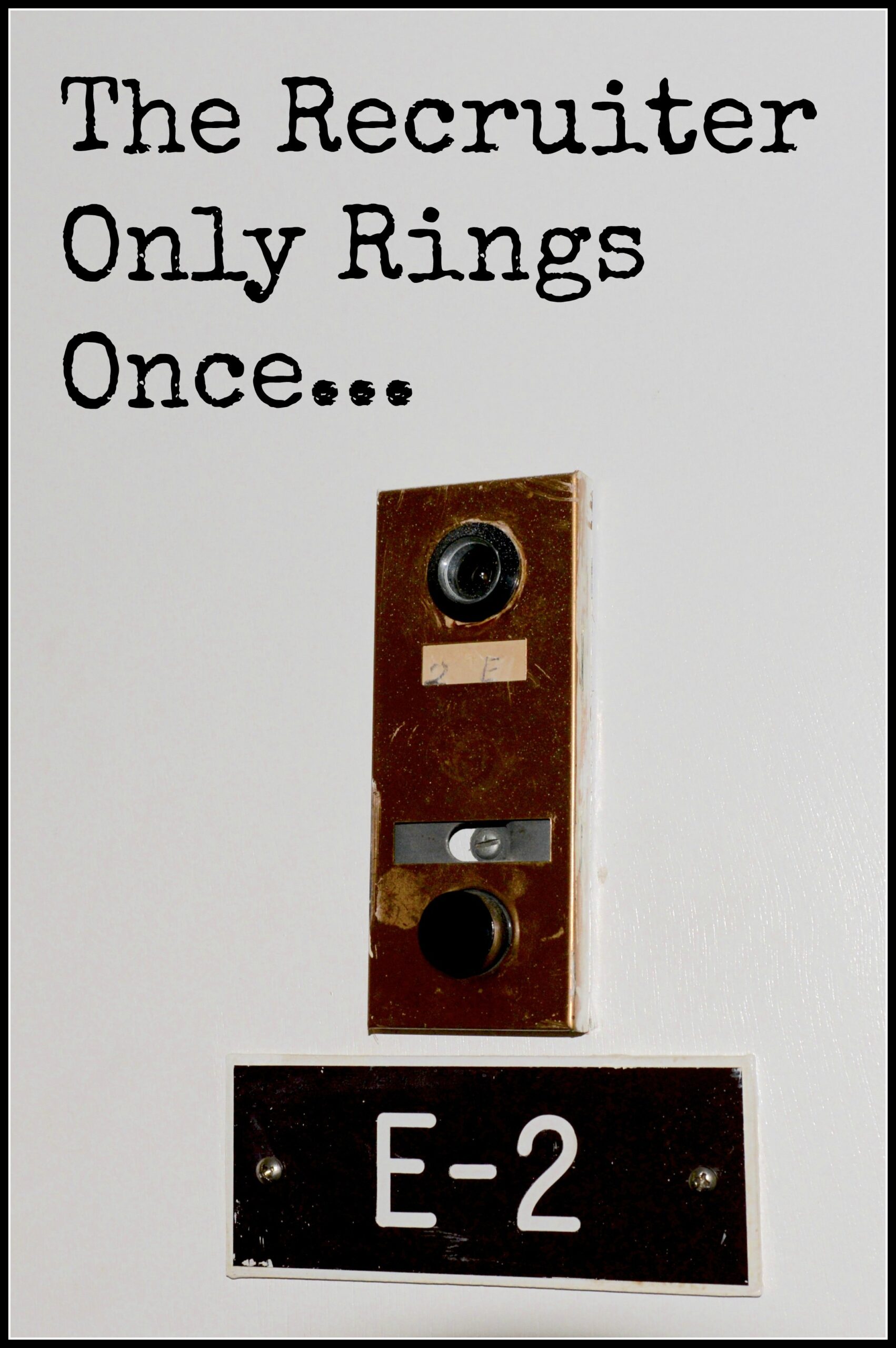You're plugging away at work, and your cell phone buzzes. You're busy as hell, and you decide to let the call roll over to voicemail.You get a break about ten minutes later, and you check your phone. It's a recruiter from a staffing firm reaching out to you to talk about a job opportunity they're …

You’re plugging away at work, and your cell phone buzzes. You’re busy as hell, and you decide to let the call roll over to voicemail.
You get a break about ten minutes later, and you check your phone. It’s a recruiter from a staffing firm reaching out to you to talk about a job opportunity they’re working on, and he said he’d like to talk with you about it because you might be a good fit for the position.
The fact of the matter is, you’re tied up right now, you’re perfectly content in your job, and the last thing you feel like doing is taking 15 minutes talking to some recruiter about a job when you’re trying to keep above water.
Let’s take a moment to talk about staffing firm recruiters and what they do; these men and women are hired by companies to find talent for open positions. They get paid by their client companies when they place somebody on the job. So, when they get an open position, they go through the effort of trying to find the job candidate most likely to fill that role, so that they can make a few bucks then move onto the next position. It’s their job to keep a pulse on who’s out there in the job market, and who might be a good fit for their openings.
Staffing firm recruiters might find about you in one of several different ways:
- LinkedIn. Staffing firms buy subscriptions to LinkedIn, they can see who has an applicable profile, whether the candidate is looking or not.
- Job Boards. Monster, Career Builder, etc… any place that an active job seeker might post their resume, a recruiter comb for candidates.
- Referrals. One of their clients or other candidates might drop your name as a qualified candidate. Somebody staked their reputation on your name.
- Cold Calling. This doesn’t happen quite as much as it used to, but it still exists. A recruiter looking for a computer programmer, for example, will call into a company asking for the IT department, and then strike up a conversation with whoever answers the phone.
The bottom line is, a recruiter will reach out to you to talk about a job opportunity, and how you react may impact whether you will be considered for this – or any other – job they work on.
Going back to the scenario detailed above, it’s easy to get annoyed at recruitment calls, especially if you aren’t expecting them. But try to think about the value in taking or returning the call.
- Recruiters are human, too. They have feelings and emotions, and if you treat them with dignity and respect, you’re going to make a better impression and probably establish a positive working relationship – even if you aren’t interested in a job change.
- Recruiters are doing their job. They need to generate candidates for their open jobs, so their call is all in a day’s work.
- Everyone the recruiter talks helps build their network. The old adage recruiters follow is that everybody you meet is a candidate, a client, or a referral. If you can be one of the three, you’ll raise your value to the recruiter.
- Aloof candidates pay the price. Candidates who never return calls or act annoyed by recruiters usually get placed on a “do not call” list as unresponsive or difficult. Just try to remember, your job may be secure today, but your company may go through layoffs tomorrow and you could be on the chopping block. If you blow off a recruiter enough times, then you try calling them only when you need something, they’ll probably be disinclined to want to work with you.
Scott Singer is the President and Founder of Insider Career Strategies Resume Writing & Career Coaching, a firm dedicated to guiding job seekers and companies through the job search and hiring process. He is a Human Resources professional and staffing expert with almost two decades of in-house corporate HR and staffing firm experience, and is a Certified Professional Resume Writer (CPRW) and Certified Professional Career Coach (CPCC).
Insider Career Strategies provides resume writing, LinkedIn profile development, and career coaching services, including a free resume review. You can email Scott Singer at scott.singer@insidercs.com, or via the website, www.insidercs.com.




